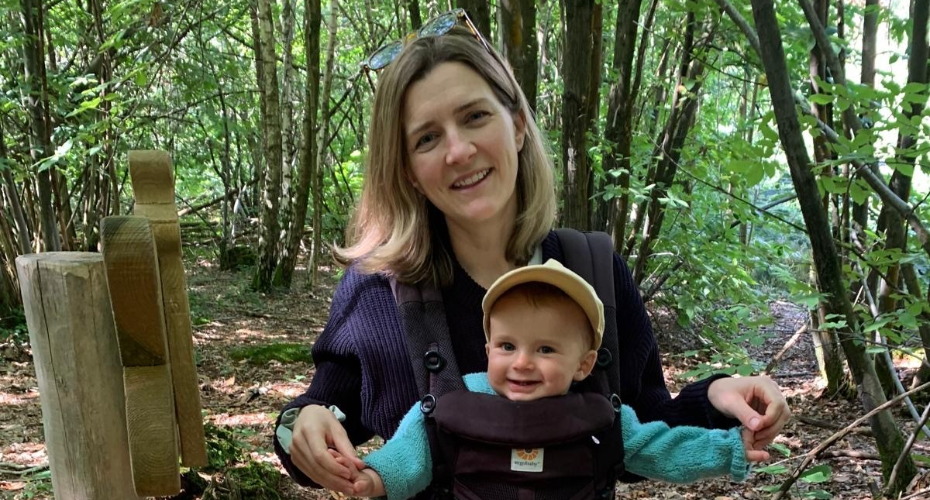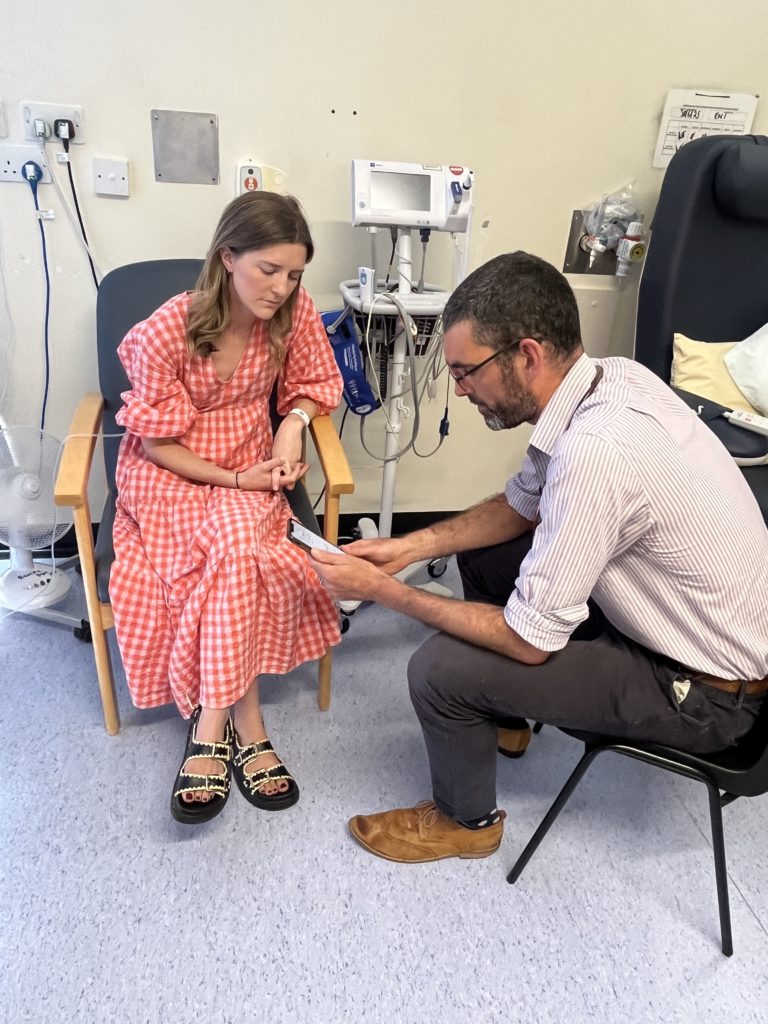First UK adult receives pioneering diabetes treatment in Exeter

The first adult in the UK to trial a ground-breaking drug for type 1 diabetes has started treatment at the Royal Devon University Healthcare NHS Foundation Trust, with support from the University of Exeter and the National Institute of Health and Care Research (NIHR).
Devon-based dentist and mum of two, Hannah Robinson, discovered during pregnancy she was in the early stages of developing type 1 diabetes. She hopes taking the drug could mean extending the time before she needs to take regular insulin injections by up to three years.
Around 4.6 million people in the UK have diabetes, with over 270,000 living with type 1. There is currently no cure, and most individuals need daily insulin to manage blood sugar levels and reduce the risk of complications.
Hannah, aged 36, said:
“I’ve learned a lot about type 1 diabetes since my diagnosis and what this means for my future. For me, this new drug offers more freedom and the chance to focus on my health before I have to start thinking differently and managing life as somebody needing daily insulin. This isn’t just about what I eat or monitoring my glucose, it is also about having more control and not feeling defined by my condition. This treatment could potentially pave the way for a future cure for type 1 diabetes, which is incredible. I feel very lucky to be part of this.”
In type 1 diabetes, the immune system attacks beta cells in the pancreas, hindering their ability to produce insulin, which regulates blood sugar levels. If blood sugar is too high or low, it can cause serious health problems.
The new drug, Teplizumab, trains the immune system to stop attacking these cells, delaying the need for insulin by up to three years. However, it must be given at the earliest stage of the disease to be effective.
Type 1 diabetes can develop at any age. Teplizumab is approved in the USA and is now being used in a small number of children and young people in the UK at the earliest stage of the disease. Hannah is the first adult in the UK to receive this ground-breaking treatment.
Dr Nick Thomas, the Diabetes Consultant treating Hannah at the Royal Devon and Academic Clinical Lecturer at the University of Exeter, said:
“This new treatment represents a really exciting shift in how we manage type 1 diabetes. For the first time ever, we will be able to provide targeted treatment early enough in the process to alter the underlying immune process, aiming to slow down how quickly people need insulin.
Approximately half of all type 1 diabetes cases develop in adulthood, and Hannah will be the first adult in the UK to receive this treatment. Teplizumab is effective only in the early stages of type 1 diabetes, but not for those with established disease, where insulin remains the only available treatment. While Teplizumab is not yet routinely available in the UK, it’s currently under review by NICE. We were granted special permission to treat Hannah with this medication, which is considered on a case-by-case basis. My hope is that in the future, we may be able to stop people with early type 1 diabetes from needing insulin at all.”

Experts at the Royal Devon and the University of Exeter are leading world-class research including using genetics combined with autoantibody testing to spot individuals at high risk of developing type 1 diabetes. This means they can be monitored and potentially offered the drug if eligible, transforming the way type 1 diabetes is managed.
Professor Richard Oram, Consultant Physician at the Royal Devon and Professor at the University of Exeter, said:
“Excitingly, Teplizumab is the first drug with the potential to delay type 1 diabetes, but needs to be given before clinical diagnosis due to high blood glucose. It is really important to find new and improved approaches for identifying individuals at elevated risk. Here in Exeter, we are undertaking cutting-edge clinical research to help us find more people at risk and discover how we can prevent them from developing type 1 diabetes. Understanding an individual’s background genetic risk can help identify those at highest risk of developing the condition, enabling us to monitor them and administer this drug when it can have the greatest benefit.”
The research is supported by the NIHR Exeter Biomedical Research Centre and the NIHR HealthTech Research Centre in Sustainable Innovation, and the NIHR Exeter Clinical Research Facility, all run in partnership between the Royal Devon and the University of Exeter. This work supports the NHS long term goal of helping people to live longer, healthier lives by treating illness early on, and finding new ways to prevent and treat diseases.
Visit the Royal Devon website to learn more: https://www.royaldevon.nhs.uk/research
To find out more about diabetes type 1, please visit the NHS website. If you are interested in research that can help identify the risk of developing type 1 diabetes, there are two trials currently open to recruitment: the ELSA study for children, and the T1DRA study for adults.



